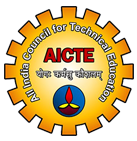About Distance M.Tech in Thermal Power
Distance learning M.Tech Thermal Power Engineering is a two-year postgraduate degree. This course covers the planning, designing, and upkeep of heating and cooling systems. The advanced level principles of energy efficiency, renewable energy, and environmental preservation are particularly the emphasis of M.Tech Thermal Power Engineering. Distance M.Tech. in Thermal Power Engineering course, students will study science and technology related to thermal energy engineering.
Distance M.Tech in Thermal Power engineering can be obtained through distance learning. Subjects covered in this degree include energy systems, thermal design, and advanced topics in thermal engineering including heat transport. It is designed for students or individuals with jobs who are unable to attend regular on-campus classes. Depending on the university offering the degree, the prerequisites may change, but they usually include coursework and a thesis or research project.
Who Should Pursue Distance M.Tech in Thermal Power
For those who fit certain requirements and have specific career objectives in the field of thermal power generation, a distance M.Tech in thermal power can be a great choice. Listed below are some potential applicants who could think about applying to this program:
Professionals currently employed in the power sector
If you are a working professional currently employed in the thermal power sector, such as in thermal power plants or related fields, and you want to advance your knowledge and abilities without taking a career break, a distance M.Tech in Thermal Power may be a good choice. It enables you to manage your obligations at work with continuing your education.
Mechanical Engineers
A distance M.Tech in Thermal Power is beneficial for mechanical engineering graduates who are interested in thermal power generation and want to specialize in this area.
Power Plant Engineers
A distance M.Tech can offer specific expertise in thermal power generation, plant operation, and efficiency improvement for professionals working in thermal power plants, such as power plant engineers or operators.
Energy managers and professionals
should think about pursuing a distance M.Tech in Thermal Power if they want to gain knowledge in thermal power production, energy efficiency, and plant optimization.
Aspiring Researchers and Academics
A distance M.Tech program might be helpful for people who want to conduct research or pursue academic jobs in thermal power generation. It can also serve as a basis for Ph.D. or additional research studies
Geographical Restrictions
Distance M.Tech programs can be especially useful for people who live in places with restricted access to elite universities that regularly offer on-campus M.Tech programs in Thermal Power
Engineers in Renewable Energy
A distance M.Tech in Thermal Power can help professionals working in the renewable energy industry, such as solar or geothermal power, by giving them knowledge of thermal power generation and hybrid power systems.
People with Work or Family Commitments
A distance M.Tech program gives you the freedom to study at your own speed and place if your personal or professional obligations make attending a standard on-campus program difficult.
Power Plant Maintenance Professionals
Professionals involved in the maintenance and optimization of thermal power plants can gain a deeper understanding of the machinery and procedures used in power plants by pursuing a distance M.Tech.
Engineers in Energy Policy and Regulation
Engineers working in energy policy and regulation can benefit from a distant M.Tech in Thermal Power to learn more about the technical aspects of thermal power generation and how it affects energy regulations.
Is M.Tech through distance education valid?
Regarding the legitimacy of MTech distance learning, there are certain concerns. There are a substantial number of universities conducting and offering admission to MTech degree programs in the distant mode, but not all of them have gone through the UGC and DEB approval procedures. Candidates who wish to enroll in the Master of Technology (MTech) program must confirm that the universities they have chosen have been approved by the appropriate educational authorities.
University approvals to check before pursuing M. Tech distance education.
Anytime, Anywhere



Are You Eligible?
Education
Students with a B. Tech degree are eligible to apply for admission to the appropriate M. Tech program. Students who have earned an M. Sc. in science, mathematics, computer science, electrical engineering, or a related discipline are eligible to apply for admission to the appropriate M. Tech. program. MCA graduates may also apply for admission to M. Tech. computer engineering branches that are pertinent to them.
Fees for B. Tech Distance Education
50K – 80K Per Year (As fees varies according to universities)
Assessment & Examination
The following steps are commonly included in the exam and evaluation process for M.Tech Engineering students using distant learning:
Internal assessment (IA) : is a part of the evaluation that is based on work done on assignments, tests, and other coursework throughout the semester. IA is normally worth roughly 25% of the course's overall grades, though this varies from institute to institute.
The term-end examination (TEE): is a thorough test that is given at the conclusion of the semester. Normally, the TEE accounts for 75% of the course's overall grades.
Project: In certain institutes, the evaluation procedure includes a project. A research article, a design project, or an internship report are all acceptable project types. Although the weighting of the project varies from institute to institute, it normally accounts for 10% of the course's overall scores.
For each course, the required passing percentage is typically 40%. But certain institutions might have a greater pass rate.
Curriculum
Semester I & II
| S. No. | Subject Code |
| MTTPE 101 | Advance Mathematics |
| MTTPE 102 | Thermodynamics and Combustion |
| MTTPE 103 | Heat & Mass Transfer |
| MTTPE 104 | Advanced Fluid Mechanics |
| MTTPE 105 | IC Engines and Alternate Fuels |
| MTTPE 106 | LAB – I (Heat Transfer) |
| MTTPE 107 | Lab – II (IC Engine) |
| MTTPE 201 | Thermal Power Plant Engineering |
| MTTPE 202 | Design of Heat Exchangers |
| MTTPE 203 | Advance Refrigeration System |
| MTTPE 204 | Steam and Gas Turbine |
| MTTPE 205 | Maintenance of Thermal Power Plant |
| MTTPE 206 | Lab – III (Maintenance of Thermal Power Plant) |
| MTTPE 207 | Lab IV (Advance Refrigeration and Air conditioning Systems) |
Semester III & IV
| S. No. | Subject Code |
| MMTP-301(A)T | Computer Aided Design of Thermal System |
| MMTP-301(B)T | Engine System Modelling and Analysis |
| MMTP-302(A)T | Gas Flow Through Turbo Machines |
| MMTP-302(B)T | Non Conventional Energy Sources |
| MMTP-302(C)T | Pump, Blowers and Compressors |
| MMTP-401P | Dissertation Part II |
Job options
Jobs directly related to your degree include:
| Thermal Power Plant Engineer | Thermal Power Efficiency Analyst |
| Thermal Power Plant Commissioning Engineer | Renewable Energy Integration Engineer |
| Environmental Engineer (Thermal Power) | Power Plant Maintenance Engineer |
| Steam Turbine Engineer | Thermal Power Project Engineer |
| Thermal Power Plant Manager | Thermal Power Generation Technician |
| Thermal Power Generation Specialist | Control and Instrumentation Engineer (Thermal Power) |
| Thermal Power Researcher | BThermal Power Plant Consultant |
| Combustion Engineer | Energy Manager (Thermal) |
| Thermal Power Plant Operator | Boiler Engineer |
| Power Plant Performance Engineer | Power Plant Safety Engineer |








